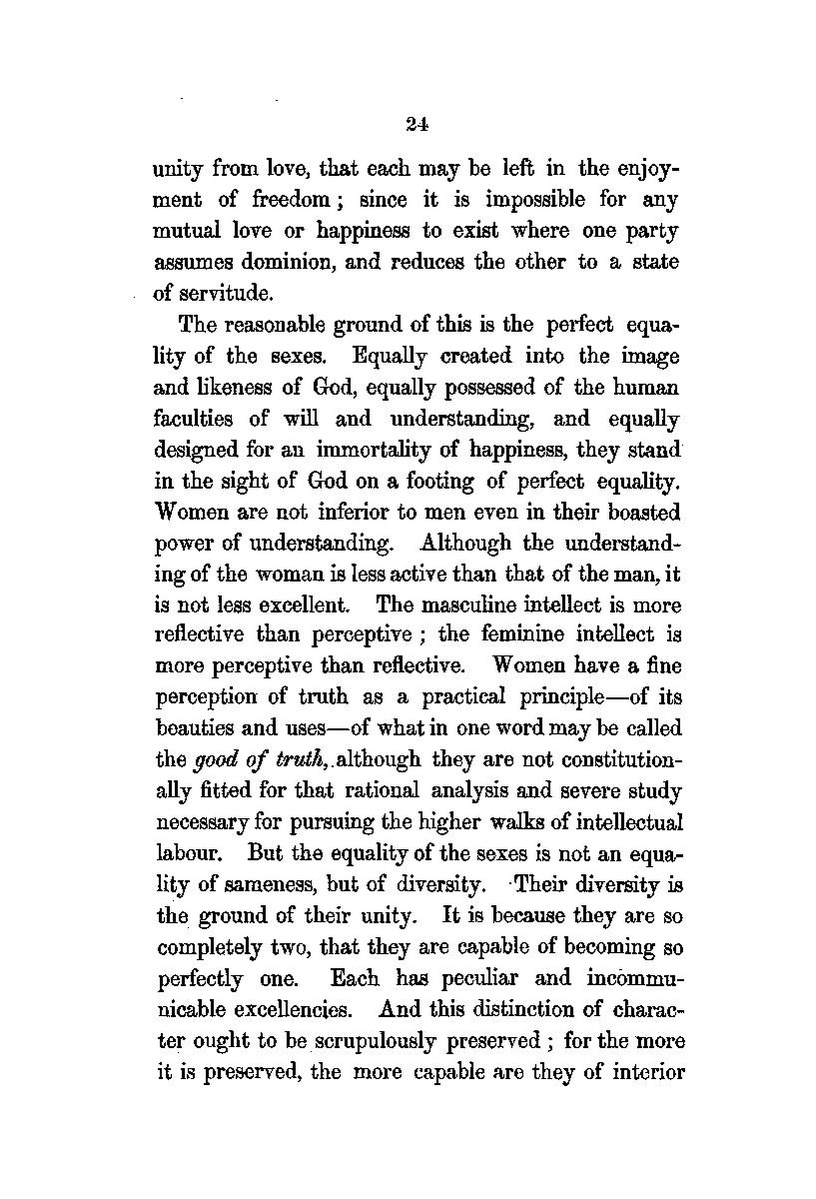24
unity from love, that each may be left in the enjoyment of freedom; since it is impossible for any mutual love or happiness to exist where one party assumes dominion, and reduces the other to a state of servitude.
The reasonable ground of this is the perfect equality of the sexes. Equally created into the image and likeness of God, equally possessed of the human faculties of will and understanding, and equally designed for an immortality of happiness, they stand in the sight of God on a footing of perfect equality. Women are not inferior to men even in their boasted power of understanding. Although the understanding of the woman is less active than that of the man, it is not less excellent. The masculine intellect is more reflective than perceptive; the feminine intellect is more perceptive than reflective. Women have a fine perception of truth as a practical principle—of its beauties and uses—of what in one word may be called the good of truth, although they are not constitutionally fitted for that rational analysis and severe study necessary for pursuing the higher walks of intellectual labour. But the equality of the sexes is not an equality of sameness, but of diversity. Their diversity is the ground of their unity. It is because they are so completely two, that they are capable of becoming so perfectly one. Each has peculiar and incommunicable excellencies. And this distinction of character ought to be scrupulously preserved; for the more it is preserved, the more capable are they of interior
